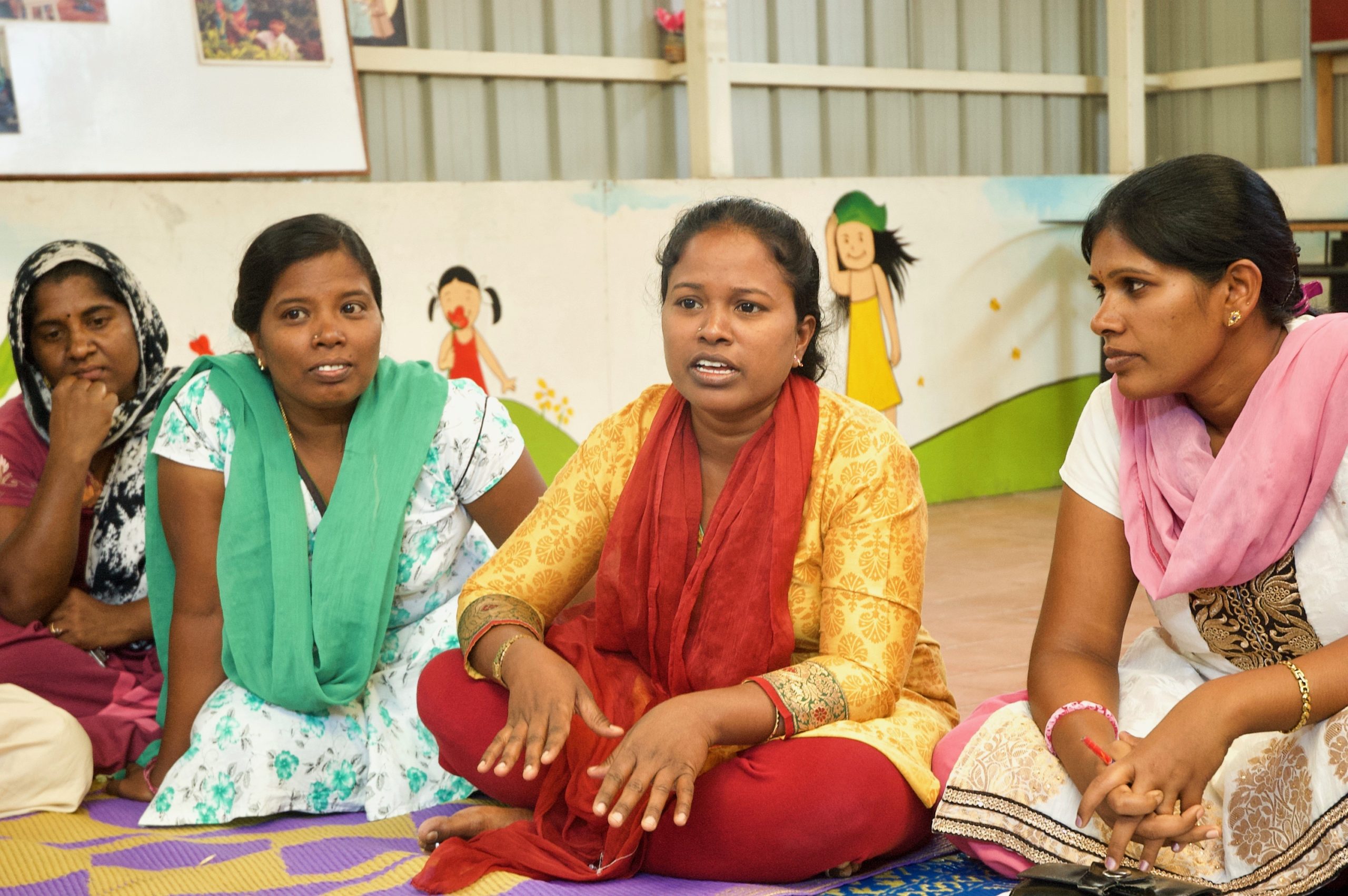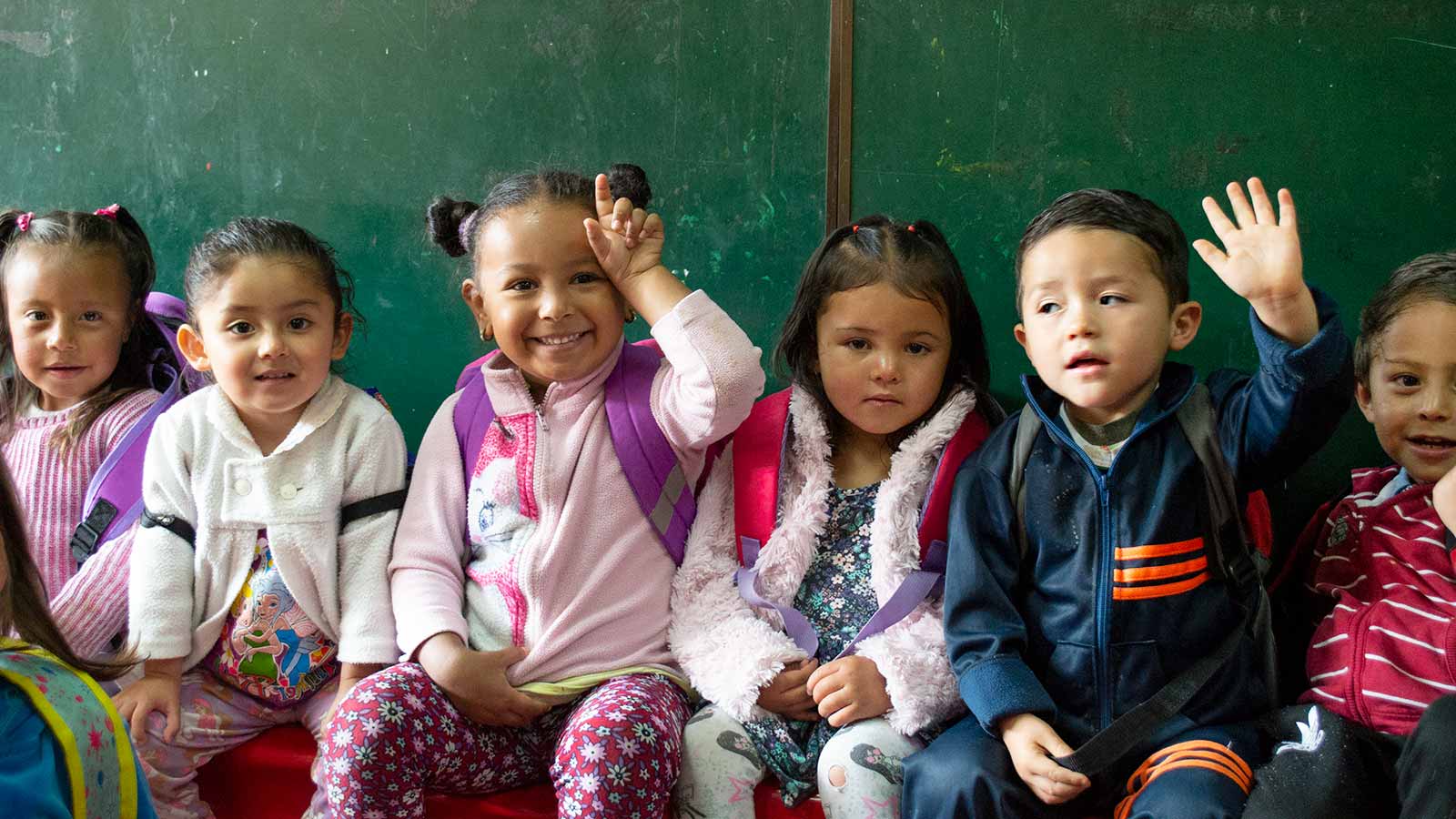The day Erika left her two sons at an orphanage felt like the end of her world. But when generous donors gave her a way to pick up the pieces of her life, she started a path forward that led her back to the light — and back to her kids.
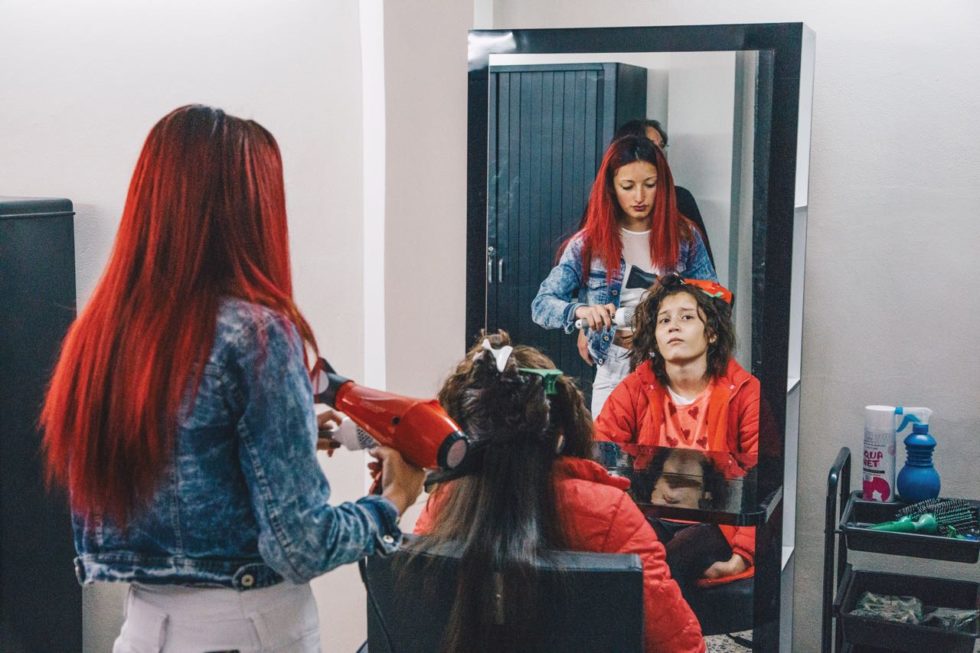
Erika’s stained clothes draped loosely off her already tiny frame. Her hair was snarled and knotted — her skin dirty.
She held one little boy in one arm and clutched another’s hand. Both boys, like their mom, were thin and messy.
They dipped through the doorway of a two-story building on a street stacked with single-room homes in southern Bogotá, not far from the hilly area where Erika grew up.
It was September 2016, and Erika, a 21-year-old mom to two toddler sons, had nothing left to give.
Months of bouncing from couch to couch, the back seats of cars —anywhere they could sleep — had left her exhausted. Erika was malnourished. Her sons were also far too skinny.
But without a home, a job, a stable family or support network, Erika could not get her feet under her. She knew that if she didn’t ask for help, the Colombian child welfare system would take her kids into protective custody, and she may never see them again.
“On that day, my need was stronger than the fear of losing my kids,” Erika says of the first time she walked into Holt partner organization BAMBI Foundation. She met with social workers and learned that they could care for her children for up to one year. They would live on a clean and bright little campus with sprawling playrooms, eat healthy meals in the cafeteria, and sleep in a warm, safe room full of beds and cribs.
“I knew they would be loved,” Erika says. “I knew if I didn’t take their help, they might die. They might get taken away. I might never change.”
That day, she made the hardest choice she’s ever made. She left her sons in the care of BAMBI.
Most of Erika’s life had been a struggle to survive.
Born in one of the most dangerous neighborhoods in southern Bogotá, one of her earliest memories was of a serial killer who snatched more than 300 children off the streets where she grew up. Kids weren’t allowed out of the house after dark — and even in daylight, they’d often disappear only to be found murdered days later. She was 5.
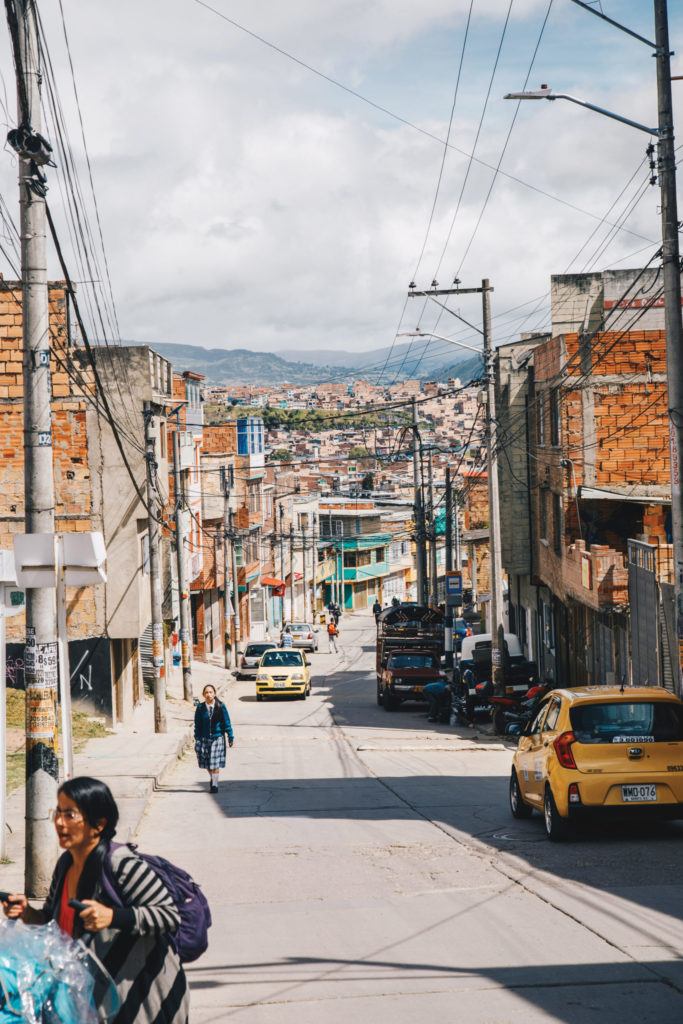
Growing up, her neighborhood was racked by drugs and crime. Most everyone was living in poverty. Once, she had to move because girls from her school threatened to kill her and her family. Like Erika, they were just teenagers. But they had connections to drug cartels, and everyone knew they were serious.
Inside Erika’s home, violence and abuse defined much of her childhood. Erika doesn’t remember her biological dad, but sometimes, her stepfather would try to protect her from her mother’s harsh beatings.
Erika says that poverty and abuse robbed her of her ability to believe that she would ever be successful in life.
“I thought I had to do bad things to survive…”
Erika
“I remember when I was about 15, I’d started partying a lot. I didn’t care about school anymore,” Erika says. “My mom found out and she was yelling at me in the kitchen of our apartment. She started hitting me and when I fell down to cover myself, she was kicking me. I thought I was going to die. I thought she would finally kill me. I was depressed and so hopeless, I just wanted my life to be over. I grabbed a knife and stabbed myself in the stomach.”
Erika pulls the bottom of her shirt up to reveal a long, jagged scar across her abdomen.
Erika survived, but her mom kicked her out of their house. With nowhere to go, she started bouncing from couch to couch, sometimes staying with her boyfriend.
In Bogotá, at the time, there were few options. She was homeless in a dangerous part of the city.
“I thought I had to do bad things to survive,” Erika says. “When I was 16, my boyfriend and I would sell stolen DVDs on the streets. Then, a man from our neighborhood hired us. I would be a lookout while they broke into apartments and robbed them.”
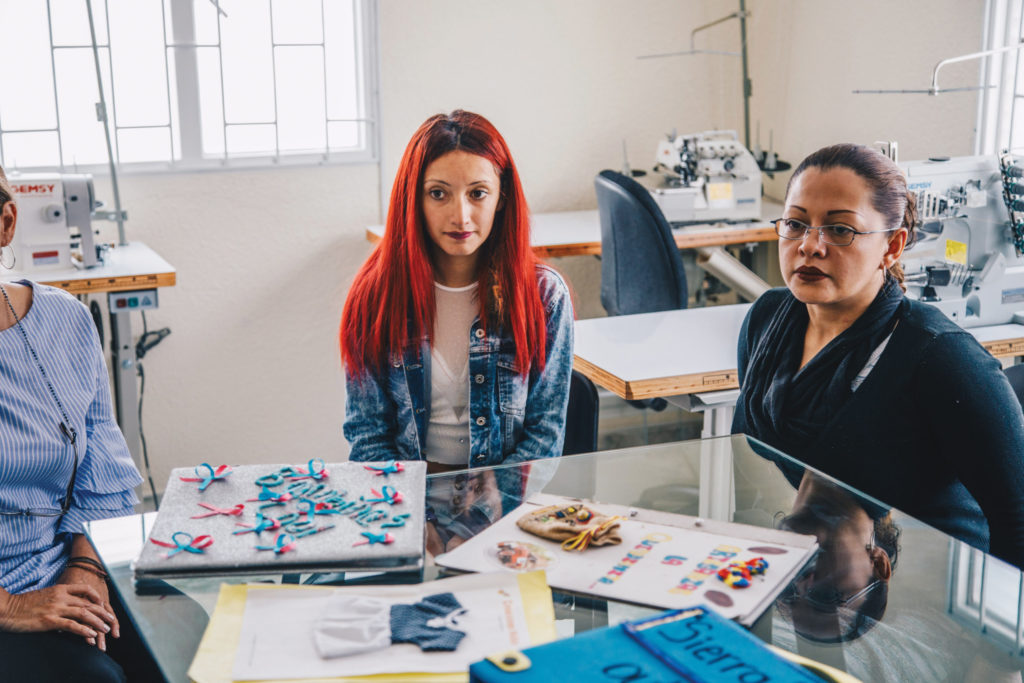
It’s been two years since Erika walked into BAMBI to relinquish her sons.
Erika’s long, red hair is sleek and shiny. She’s got a bright, warm smile and an inviting, gregarious energy.
Another young woman sits in a salon chair in front of Erika, and Erika brushes a piece of her hair straight with one hand and waves a blow dryer over it with her other hand. Erika’s salon booth is tidy, with combs and curling irons tucked in drawers, and displays of makeup and manicure materials perched on top of her vanity.
It’s July 8, 2018. Today is a day to celebrate. Just a week ago, Erika reached a huge milestone. She got her high school-equivalency diploma. It’s been 19 months since she first brought her kids into care at BAMBI.
For the past seven, she’s also been parenting her sons full time.
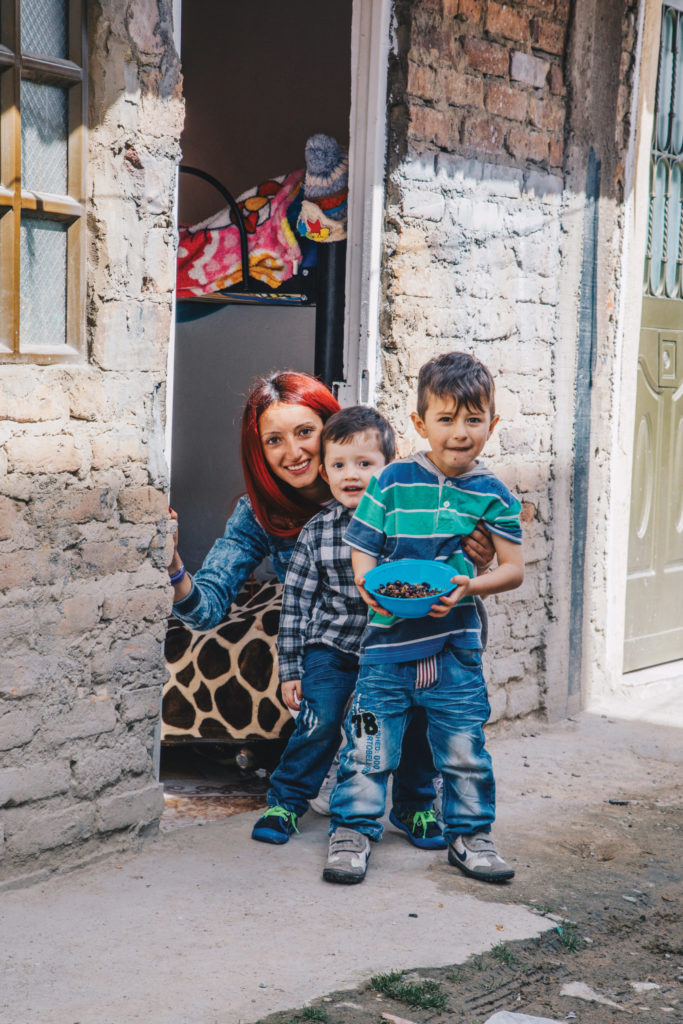
Her apartment is within close walking distance of BAMBI. It’s a small, one-room place with a shared kitchen. But, it’s safe and her sons know where they will sleep each night.
She is reaching the final phases of her vocational training to become a stylist. She dreams, someday, of opening her own spa. She has business cards with her name and logo and she is starting to develop her own clients.
At 23, Erika feels like she’s been given a second chance at life — the chance to raise her children with the love, stability and emphasis on their education that she never received.
All of Erika’s styling and beauty supplies, all her training, all the support her kids have received along the way — even now, as they play next door at BAMBI’s free community daycare center — came from generous donors. Because kind people believed deeply that young moms like Erika deserve the chance to turn their lives around, Erika finally has hope for her future. Each time Erika would pass one part of her curriculum, she’d receive new supplies, such as makeup brushes, shampoos and cutting shears, for the next step in her program. Those gifts kept her motivated and provided everything she needed to not only learn her craft, but launch her own business.
But Erika had to work for it, every step of the way.
She thinks back to just a few years ago when her youngest son, Danny, was still a baby. He nearly died because he wasn’t getting enough to eat. Now, as a 3-year-old, he runs and plays, bursting with energy. Her oldest son, 5-year-old Teylor, is learning preschool skills.
“Back then, I didn’t know what I was going to do for dinner each night,” Erika says. “Now, I have a plan for the future.”
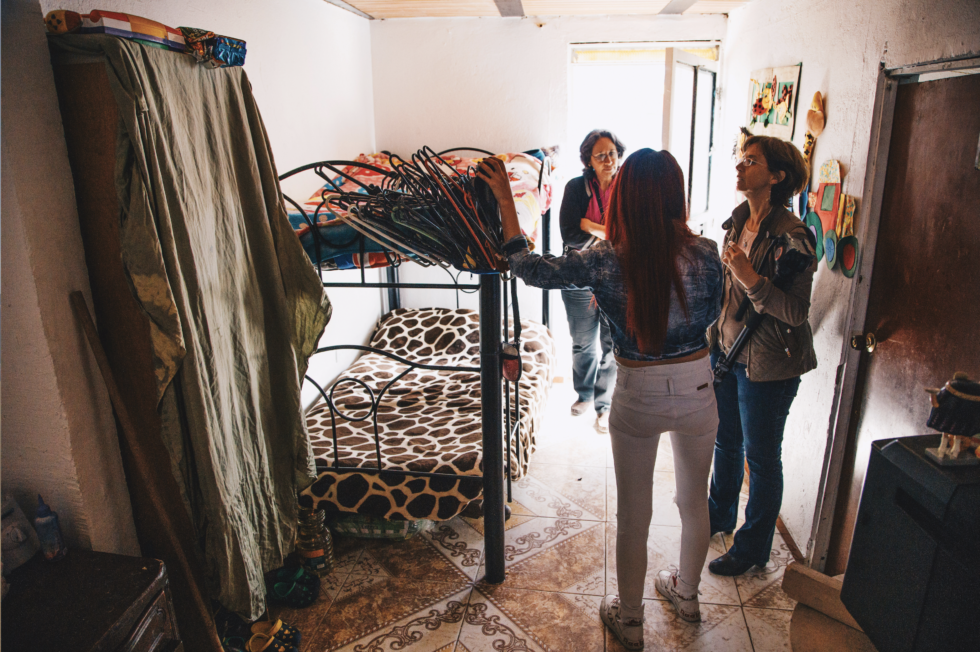
As Colombia is Holt’s newest country program, BAMBI Foundation is also Holt’s newest partner. But their programs for orphaned and homeless kids, single mothers and struggling families are anything but new. For the past 18 years, they’ve served children and families in some of Bogotá’s toughest neighborhoods — including south of old downtown, where more than 80 percent of the population lives in poverty, as well as four other communities previously devastated by the drug war. More than 450 families are currently enrolled.
BAMBI maintains a full-time care center for children who have been orphaned, abandoned or removed from their homes for safety reasons or neglect. But they are also one of the few organizations that lets parents like Erika request temporary help caring for their kids. Children can stay for up to a year before they are transferred to the child welfare system.
Because kind people believed deeply that young moms like Erika deserve the chance to turn their lives around, Erika finally has hope for her future.
They also have programs for parents — 90 percent of whom are single moms — to learn job skills, financial literacy, parenting and life skills. Their vocational training program has six options — baking, IT, tailoring, marketing and sales, or hair and makeup styling. They provide business classes and microgrants to women who want to launch small businesses in the community. Each student accepted into the vocational training program has strict requirements for attendance and performance.
Because of her criminal history, Erika not only had to meet attendance, punctuality and graded-performance requirements, she also agreed to regular drug testing, hygiene requirements and additional parenting courses.
“Erika has a very strong will,” her teacher, mentor and counselor, Lisetthe, says. “Even when she had no food, no place to sleep, no place to shower, she would still show up to class — and that made all the difference.”
It’s stories of success despite tremendous odds like Erika’s that give the staff at BAMBI hope. But they know that her story is not unique. There are many more moms and many more kids who need help.
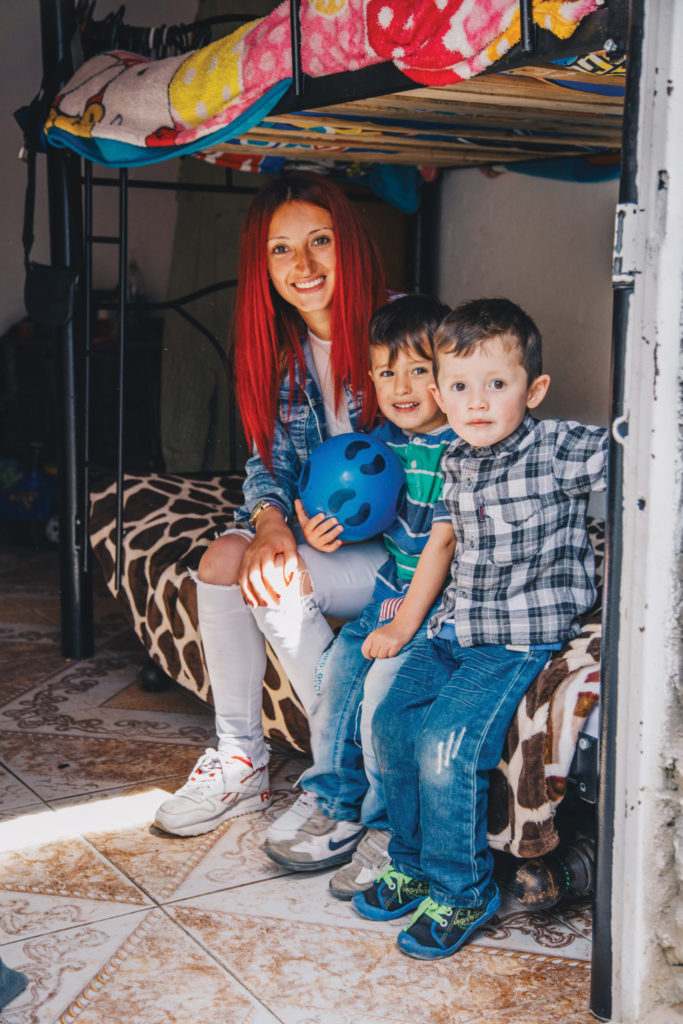
In the lowest-income neighborhoods, safe child care is virtually nonexistent, which puts women in a position to choose between leaving their kids somewhere unsafe or not working. BAMBI’s free day care program is one of the nicest in the area, both in terms of the facility and the level of training among the staff. But it’s child sponsors who cover the cost of daycare and vocational training programs for hard-working and willing parents. In addition to helping one child, sponsors also make sure that entire communities have access to training at BAMBI, as well as family-centered counseling services critical to the many men, women and children in this neighborhood who survived violence, abuse, neglect and trauma.
“Here, our goal is not that families won’t be poor,” Lisetthe says. “It’s that they will improve their living conditions, learn skills to keep their kids and families safe, and grow in their self-confidence.”
Billie Loewen | Former Holt Staff Member
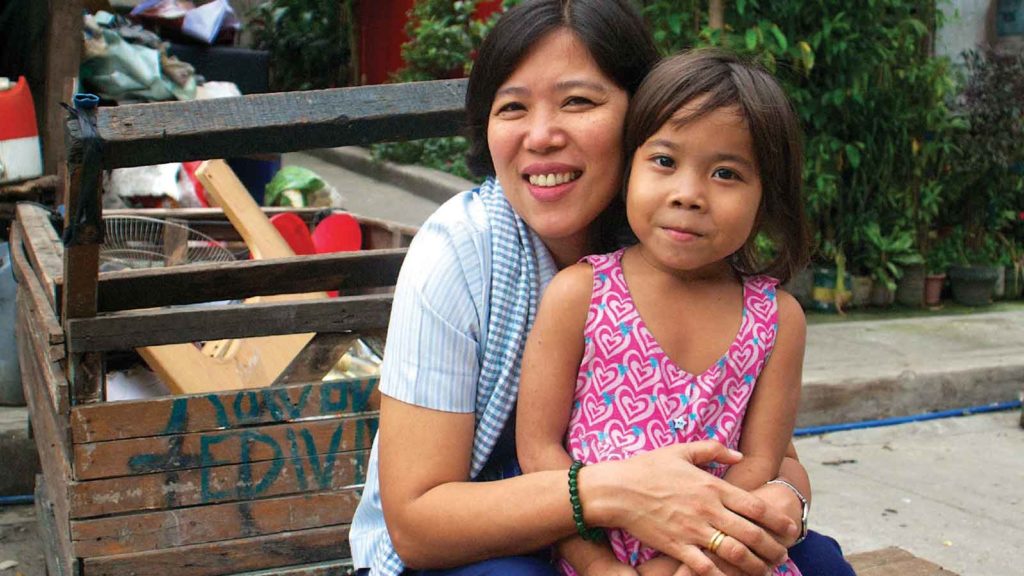
Empower a Single Mom
You can give a single mom the personalized help she needs to become independent and support her children. Whether you provide a safe home, nutrition training, baby items or education, empowering a mom will change her and her children’s lives forever.
